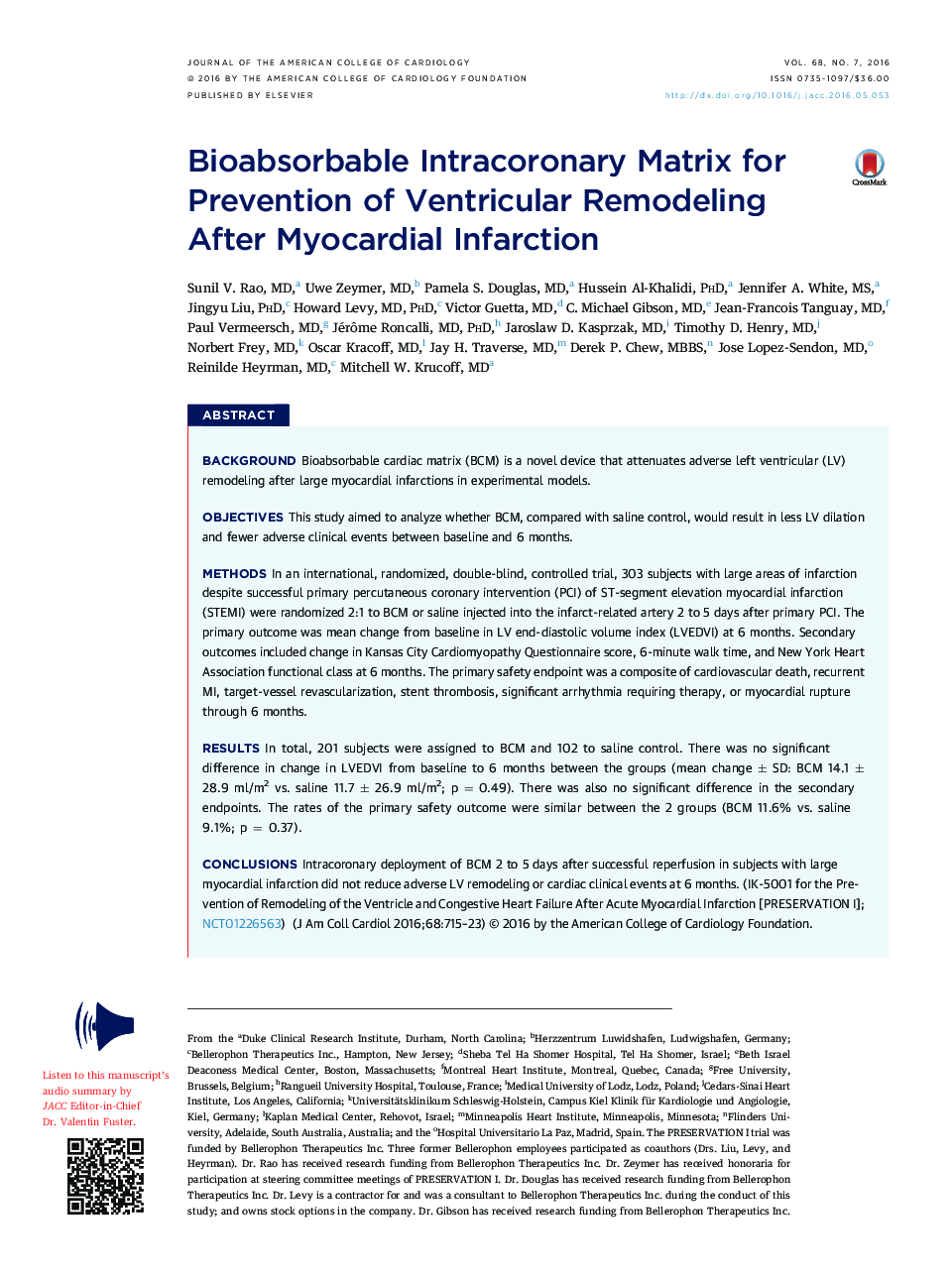| Article ID | Journal | Published Year | Pages | File Type |
|---|---|---|---|---|
| 2942746 | Journal of the American College of Cardiology | 2016 | 9 Pages |
BackgroundBioabsorbable cardiac matrix (BCM) is a novel device that attenuates adverse left ventricular (LV) remodeling after large myocardial infarctions in experimental models.ObjectivesThis study aimed to analyze whether BCM, compared with saline control, would result in less LV dilation and fewer adverse clinical events between baseline and 6 months.MethodsIn an international, randomized, double-blind, controlled trial, 303 subjects with large areas of infarction despite successful primary percutaneous coronary intervention (PCI) of ST-segment elevation myocardial infarction (STEMI) were randomized 2:1 to BCM or saline injected into the infarct-related artery 2 to 5 days after primary PCI. The primary outcome was mean change from baseline in LV end-diastolic volume index (LVEDVI) at 6 months. Secondary outcomes included change in Kansas City Cardiomyopathy Questionnaire score, 6-minute walk time, and New York Heart Association functional class at 6 months. The primary safety endpoint was a composite of cardiovascular death, recurrent MI, target-vessel revascularization, stent thrombosis, significant arrhythmia requiring therapy, or myocardial rupture through 6 months.ResultsIn total, 201 subjects were assigned to BCM and 102 to saline control. There was no significant difference in change in LVEDVI from baseline to 6 months between the groups (mean change ± SD: BCM 14.1 ± 28.9 ml/m2 vs. saline 11.7 ± 26.9 ml/m2; p = 0.49). There was also no significant difference in the secondary endpoints. The rates of the primary safety outcome were similar between the 2 groups (BCM 11.6% vs. saline 9.1%; p = 0.37).ConclusionsIntracoronary deployment of BCM 2 to 5 days after successful reperfusion in subjects with large myocardial infarction did not reduce adverse LV remodeling or cardiac clinical events at 6 months. (IK-5001 for the Prevention of Remodeling of the Ventricle and Congestive Heart Failure After Acute Myocardial Infarction [PRESERVATION I]; NCT01226563)
